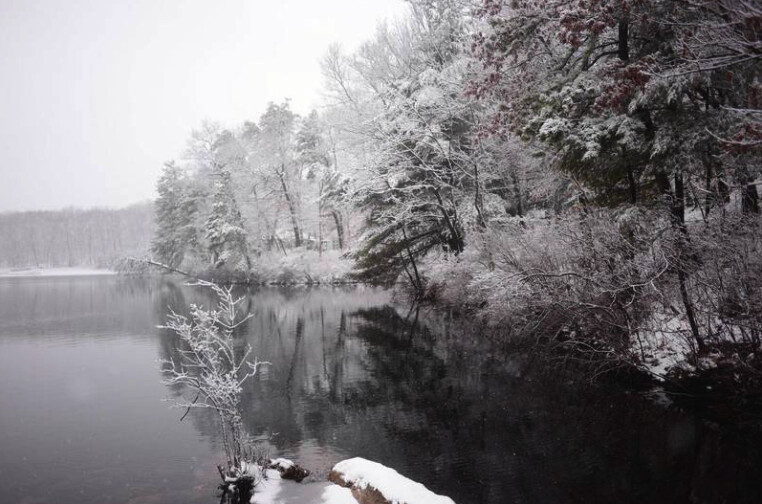Image


Thanks to Hale Education, The Trustees of Reservations, and Dover Land Conservation Trust for contributing this news to Westwood Minute.
DOVER & WESTWOOD, MASS.— A move to conserve and preserve more than 1,100 acres of land in Dover and Westwood has taken a significant step forward with the submission of conservation restrictions to the state for review and approval. The effort would protect one of the largest contiguous privately-owned tracts of land in the Boston metro region in many decades.
The Trustees of Reservations will acquire a conservation restriction from Hale Education, Inc. on approximately 970 acres and will partner with the Dover Land Conservation Trust (DLCT) to simultaneously purchase and protect 138 acres from Hale Education. The Trustees will convey a conservation restriction on the 138 acres to the DLCT. A conservation restriction is a method to permanently protect environmental values and limit the ways privately-owned land can be used forever. Hale Education will continue to be the owner of the 970 acres under conservation restrictions.
“This partnership with Hale Education and Dover Land Conservation Trust, combined with the tremendous support of the Westwood Land Trust, will conserve the largest tract of land in the Boston metro area in recent memory,” said Katie Theoharides, president and CEO of The Trustees. “Conserving the Hale property ensures that the public will enjoy this land for generations, and that Hale can continue its important legacy of nature- based educational programs that connect children with nature. We are honored to partner with them.”
The effort would permanently preserve and protect the land, keeping miles of trails open to the public in perpetuity. It also furthers efforts to protect the character of the region, known for its forested and agricultural landscapes.
Hale’s land is frequented annually by tens of thousands of children, families, residents, and visitors for camps, school programs, and passive recreation including walking, birdwatching, hiking, mountain biking, snowshoeing, and swimming. It features over 15 miles of trails, four ponds, woodlands, and meadows. The conservation restriction will ensure natural features are preserved in perpetuity, ensure public access to miles of trails, and give Hale the flexibility to steward the land for recreation and its ongoing programmatic use.
 Photo courtesy of Hale Education.
Photo courtesy of Hale Education.“The permanent protection of this incredible open space wouldn’t have been possible without deep community support from individual donors and local organizations,” said Hale’s executive director, Aaron Morehouse. “We’re incredibly appreciative of their investment in Hale’s future and are so pleased to be moving forward in this historic effort with The Trustees and DLCT.”
Hale Education’s contemporary mission—to unite people, place, and purpose—has, in many ways, been its guiding light since founder Robert Sever Hale first invited Boston’s youth to engage with the land in 1918. Over the course of the past century, its programs have remained steadfast in their focus on place-based, experiential learning that fosters appreciation for the natural environment while building young leaders. In addition to permanently protecting this land, the conservation restriction will safeguard the invaluable learning space and community asset for generations to come.
Hale’s land abuts two properties owned by The Trustees—the 109-acre Powisset Farm and the 595-acre Noanet Woodlands, as well as lands protected by the Dover Land Conservation Trust, and the towns of Dover and Westwood. With this project a network of trails through more than 2,000 acres of conservation land will be forever protected for public benefit.
Under the larger conservation restriction, Hale will continue to own the land and engage in all its current uses, including operating outdoor educational programs for schools, youth groups, as well as summer camps and community events. Hale has chosen to make its trails accessible to the public for decades but has never been obligated to do so; continued public access will be permanently secured by the conservation restriction.
“The Dover Land Conservation Trust is excited to play a role in such a significant land conservation effort,” said Amey Moot, DLCT President. “Protected open space is at the heart of what makes Dover special. The positive environmental impact of conserving this land and the vast trail network will benefit the public forever.”
The conservation restrictions are currently under programmatic and legal review by the state’s Division of Conservation Services in the Executive Office of Energy and Environmental Affairs. The Trustees has also been awarded a Conservation Partnership Grant by the Massachusetts Executive Office of Energy and Environmental Affairs. The project is anticipated to be completed by July 2025.